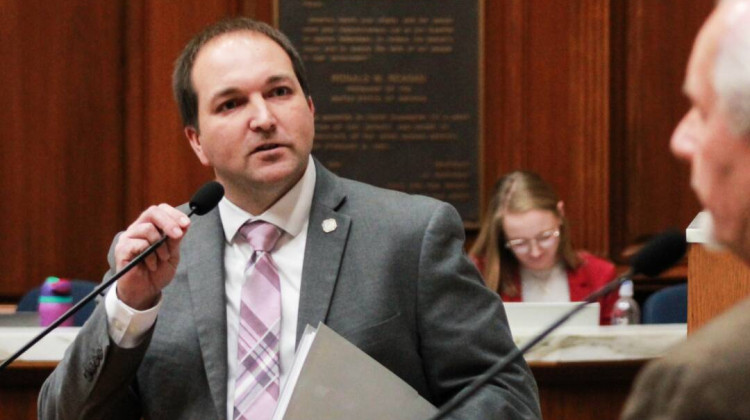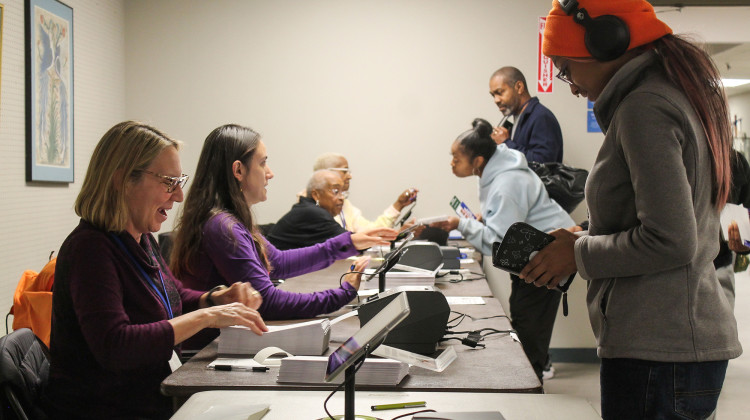High school courses in areas like culinary arts and cosmetology could lose state funding if a budget proposal from Republican lawmakers passes. Educators worry thousands of students would miss career opportunities without the state support.
Indiana funds high school career and technical education (CTE) classes based on the demand for workers with certain skills, based on labor market information from analytics company Burning Glass, and how much they typically get paid, based on federal wage estimates.
The proposed budget would increase funding for “high value” classes like welding and industrial automation while eliminating funding from almost two dozen "less than moderate value" classes like culinary arts, cosmetology, fashion and more.
There are fewer high school students enrolled in "less than moderate" value courses than higher valued CTE courses. However, there are also fewer of those classes.
Lafayette culinary arts instructor Chad Young said cutting state funding would be a grave mistake. Young said his class prepares students for the first steps in potentially lucrative careers, once they ascend to managerial positions in the hospitality industry.
More immediately, Young said local restaurants are begging him for workers.
“Now that people are returning back from COVID and things are getting under control with the pandemic, these restaurants are firing back up and the supply and demand is huge right now,” he said.
He noted that lawmakers don't understand how important these classes are, and it's apparent in the way some used phrases like "food cooking" to describe his curriculum in the general assembly.
"These days, it’s not just about producing food," he said. "It’s about safety and sanitation, it’s about customer service, it’s about kitchen design, it’s about how we market things and how we turn a profit and revenue and things.”
READ MORE: How Do I Follow Indiana's Legislative Session? Here's Your Guide To Demystify The Process
Join the conversation and sign up for the Indiana Two-Way. Text "Indiana" to 73224. Your comments and questions in response to our weekly text help us find the answers you need on COVID-19 and other statewide issues.
Representative Tim Brown (R-Crawfordsville) said just because schools wouldn't get money for those courses if the budget proposal stays, that doesn't mean they can't offer the courses.
"It's a local school decision," he said. "They may offer those courses, they just won't get reimbursed from the state for it. If that's what they want to do they have money coming for overall education."
He said the state would simply be incentivizing high-wage CTE programs over the "very mild" lower-wage programming.
"I hear from the rest of the state that's looking for manufacturing workers, for plumbers and electricians, carpenters and laborers" he said. "That's where we have higher employment going on right now."
The Governor’s Workforce Cabinet oversees CTE funding levels in the state. Executive Director PJ McGrew says they don't support the funding changes, especially since they’re working on a new curriculum and a review of their course funding process. But he does acknowledge and appreciate a provision that could put money toward paying for certification exams for students.
“There could’ve been other ways to find some funding ... that did not require cutting funding from the less than moderate value courses,” he said.
McGrew cautions that the proposed budget is still in the early stages and will likely undergo changes over the next few months in the legislative process.
"There's a long way to go before things are all final," he said. "We're going to keep monitoring things and see what happens."
Contact reporter Justin at jhicks@wvpe.org or follow him on Twitter at @Hicks_JustinM.
 DONATE
DONATE









 Support WFYI. We can't do it without you.
Support WFYI. We can't do it without you.